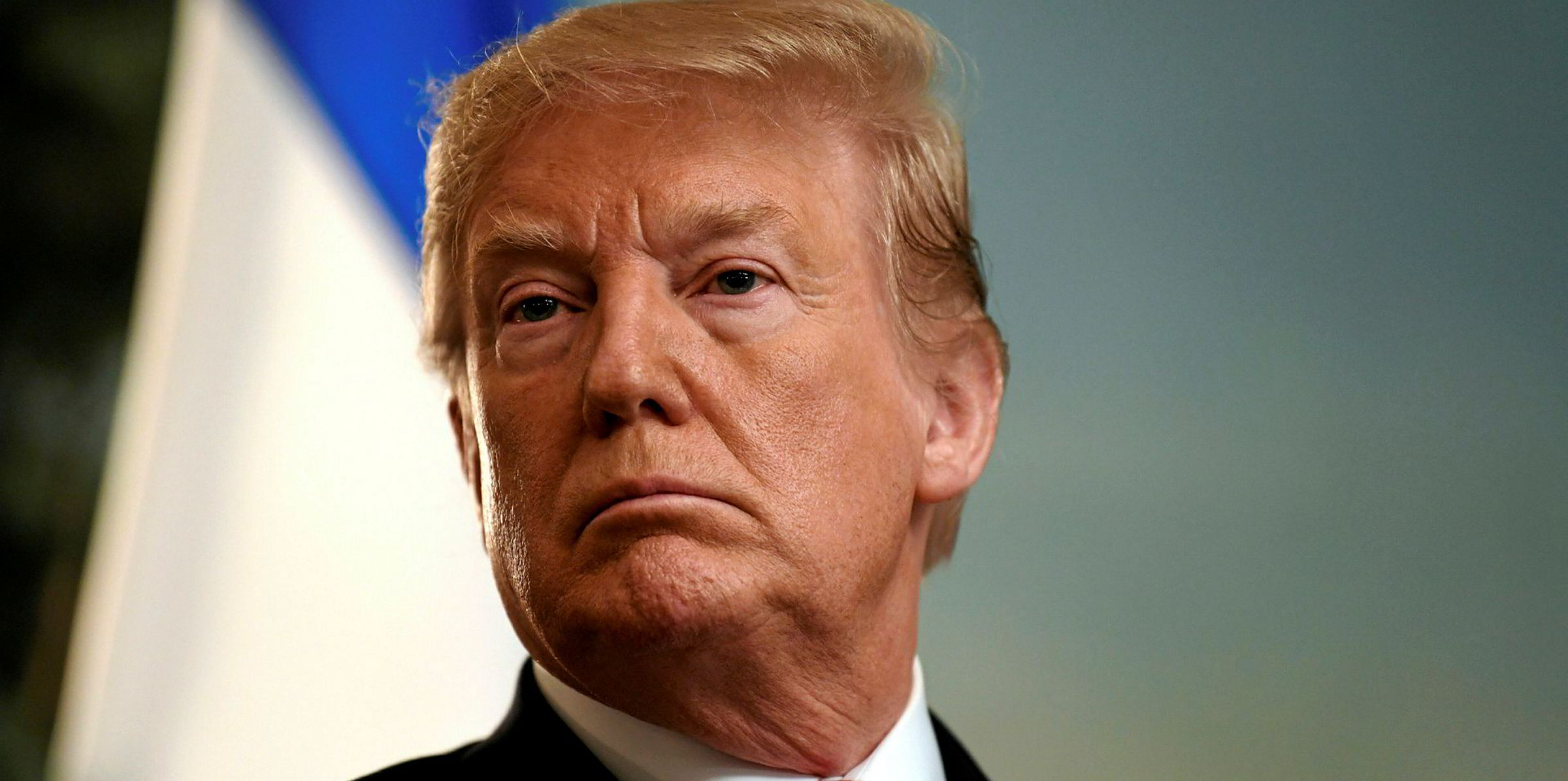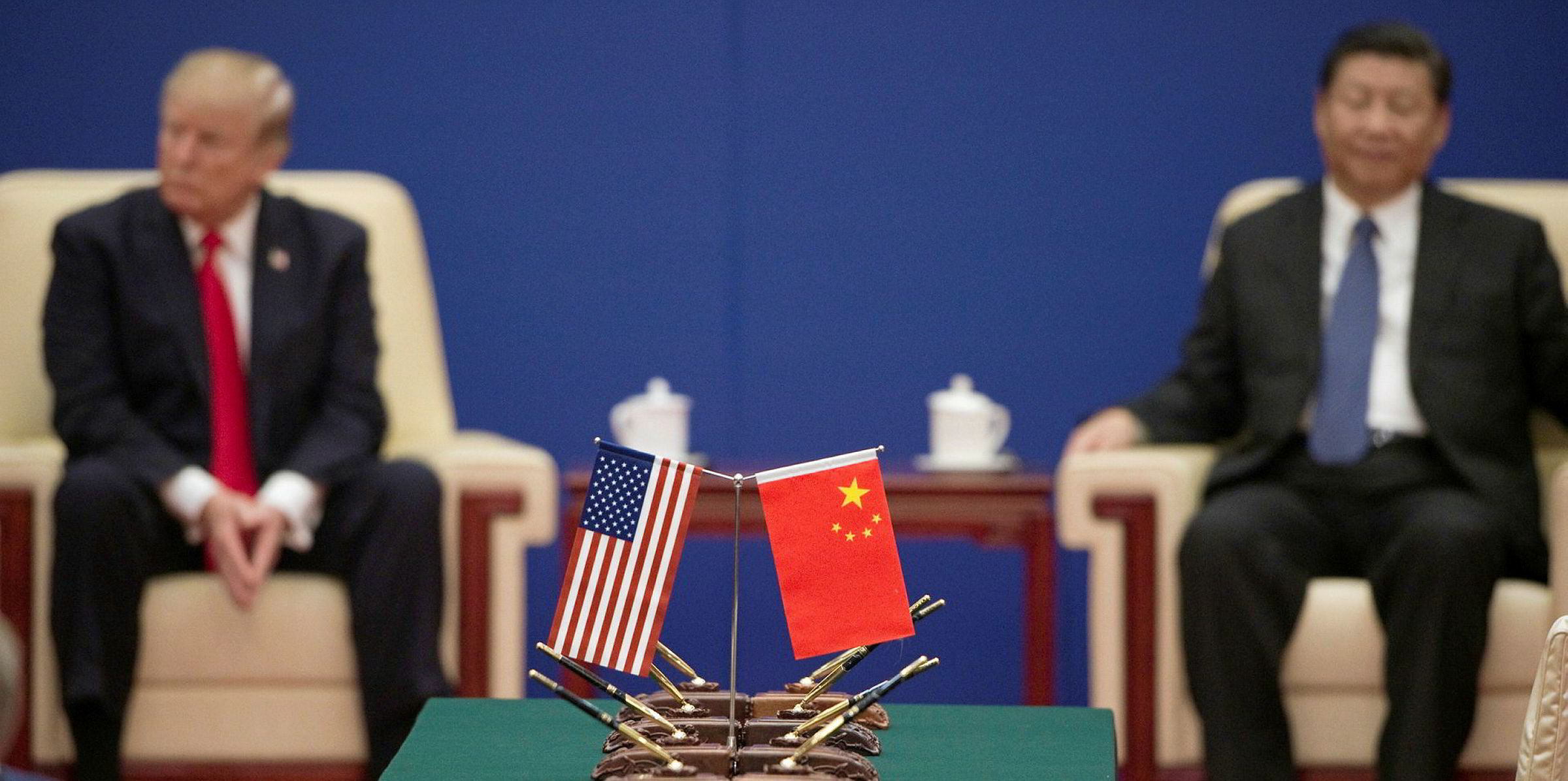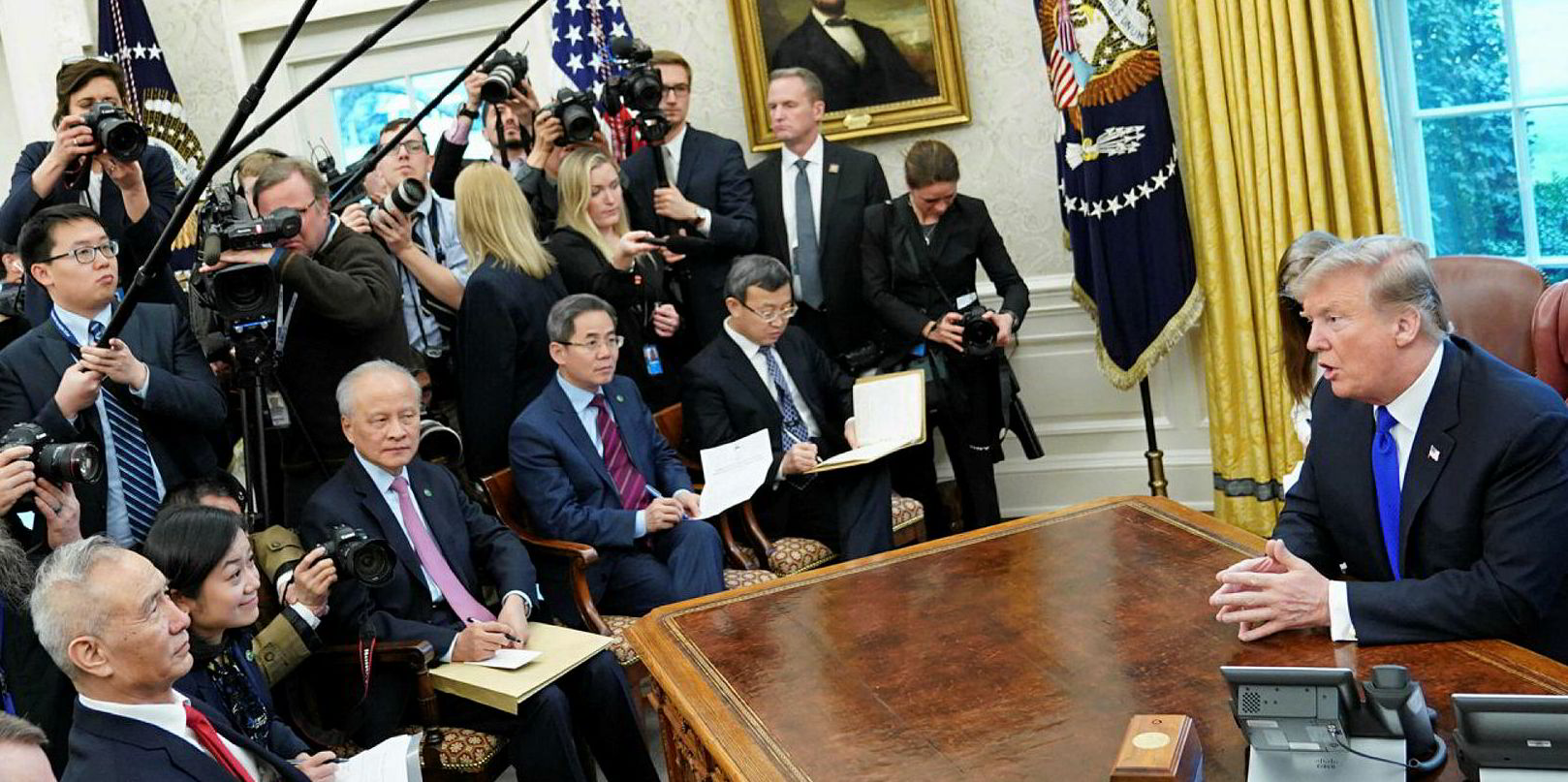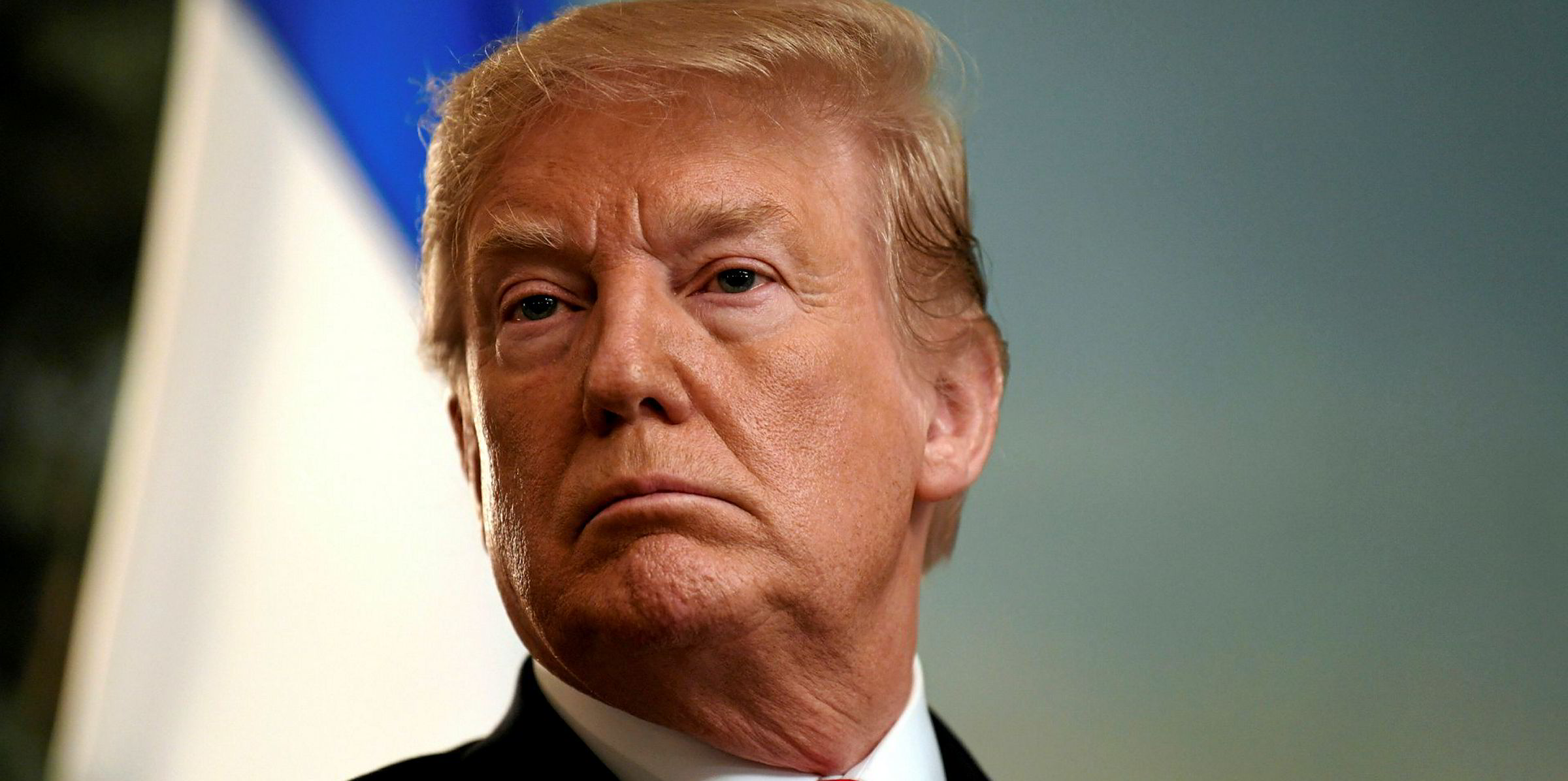Donald Trump has ratcheted up his trade war with China threatening to raise some existing tariffs and introduce additional charges on Chinese goods.
The shift is a worrying development for shipowners, who had been hopeful of an easing of Trump's trade war with China, and crashed stocks in major Asian shipowners on Monday.
Analysts at Clarksons Platou Securities say an escalation of the trade war would be negative for shipping as it could negatively impact Chinese GDP growth and commodity import demand.
Trump said tariffs on $200bn worth of Chinese goods were pending because talks on a trade deal were moving “too slowly”.
The US president, speaking via Twitter, said that tariffs of 10% on certain goods would “rise to 25% on Friday”.
Trump added that $325bn of additional goods sent to us by China remain untaxed, but will be “shortly”, at a rate of 25%”.
“The Trade Deal with China continues, but too slowly, as they attempt to renegotiate. No!” he tweeted.
Trump turns up the volume
One leading US analyst told TradeWinds the latest developments could have the most impact for the dry bulk and container markets, but would also have a wider reach given the close link between the industry and the global economy.
"On a long-term basis it may still seems like noise, but he just keeps cranking the volume up," the analyst said.
Analysts at Arctic Securities said: "For shipping, an extension of the trade war would in general be negative across the board, as it will induce macro concerns and headwinds that would hit demand growth expectations.
"Moreover, an extension of the tariffs between the two countries could in particular have negative impact on the soybean, LPG, LNG and crude oil trade."
In response to Trump's social media threats, China may pull out of trade talks scheduled to be held in Washington this week, the Wall Street Journal reported Sunday.
Negotiations are scheduled to resume Wednesday in Washington, and last week US officials seemed hopeful that a trade deal could be agreed upon by the end of this week.
Chinese officials have previously said they would not respond to pressure tactics and are now reevaluating whether to attend the talks, the Journal said.
Trade war momentum swings again
Trump's Sunday tweet marked the latest shift in the relationship between Washington and Beijing, which had looked to be improving and many had thought a new trade deal was close.
Joakim Hannisdahl of Cleaves Securities said: “Although we view this primarily as a negotiation strategy, it is undoubtfully a step backwards from the optimism that has surrounded the trade negotiations in recent weeks and months."
US stock futures fell sharply Sunday after Trump’s tweets about raising tariffs on $200bn worth of Chinese goods to 25%.
Dow Jones Industrial Average futures sank more than 480 points, or 1.8%, while S&P 500 futures fell 1.8% and Nasdaq Composite futures dropped 2.1%.
As the news traveled around the world, shipping stocks responded with some heavy declines.
Cosco Shipping Energy Transportation and Cosco Shipping Development saw their largest intra-day decline in over three years in Hong Kong, slumping harder than the benchmark index, according to Bloomberg.
Hannisdahl said: “Shipping shares are on average significantly down on the news. If the trade war is escalated rather than winded down, we see the greatest impact on smaller dry bulk vessels trading grains, container shipping and LPG shipping.”
"Another weekend, another oil related tweet from president Trump," said Ole-Rikard Hammer, a senior oil and tanker market analyst at Arctic Securities.
"His threat to step-up tariffs on China revives barely forgotten demand fears and is causing anything growth related to slump Monday morning, including oil and commodities."






